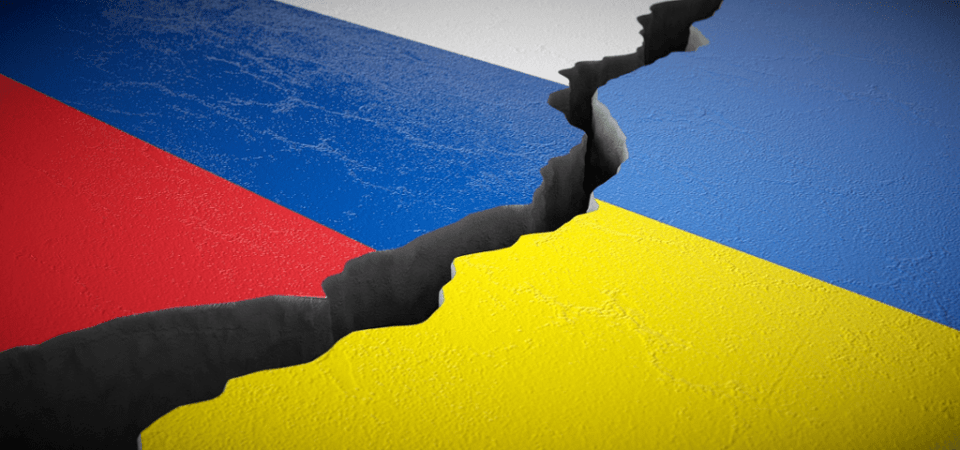Russia’s decision to invade its neighbour to the west is likely to cause some travel pains for the kingdom as well as supply chain snags down the line if the conflict is prolonged
Russia’s invasion of Ukraine on Feb 24 marks a major conflict that sent shockwaves through global stock and commodities markets.
The action could affect tourism around the world, including in Thailand, which is still struggling to recover economically from the pandemic stress.
Will travel be considered a luxury during unsettling times?
Thailand’s Department of Disease Control said Russia topped the list of international tourist arrivals in February following the resumption of the Test & Go scheme with 17,599 travellers.
This was followed by 13,964 visitors from Germany and 11,278 from the uk
Paul Pruangkarn, chief of staff at the Pacific Asia Travel Association, said increasingly aggressive international sanctions on the Kremlin have resulted in Russians scrambling to withdraw money from ATMs as the country’s currency continues to crash.
Russians are unlikely to spend as much on travel as they save to prepare for difficult times, he said.
“People who are able to escape that kind of madness over there might want to travel, but we won’t know the impact of the sanctions on these travellers yet,” Mr Paul said.
“This certainly impacts more than just Russians. Long-haul travellers from Europe or people flying in that direction may be less likely to want to travel.
There are now flight disruptions from the UK to Thailand. Flights are being diverted away from Ukraine’s airspace. This affects travel sentiment.”
Thanet Supornsahasrungsi, acting president of the Chon Buri Tourism Council, expects Russians will keep their existing travel plans as long as airlines are still operating.
He said most Russian arrivals either have residences or businesses in Thailand, especially in Pattaya.
Thailand’s Finance Ministry estimated at least 35.9 billion baht in tourism revenue from the Russian market would disappear, lowering Thailand’s GDP by 0.2% if the projected 450,000 Russian tourists for 2022 are no longer able to visit the country.
According to Thailand’s Tourism and Sports Ministry, the Russian market generated 103 billion baht for the tourism sector in 2019.
How will thai exports perform?
Thailand has marginal exposure to the two sovereign nations, with the combined total value of exports to Russia and Ukraine standing at 0.41%. The Finance Ministry said Thailand’s exports to Russia and Ukraine in 2021 amounted to 32.7 billion baht (0.36%) and 4.3 billion (0.05%), respectively.
Chaichan Chareonsuk, chairman of the Thai National Shippers’ Council (TNSC), agreed and said the council expects Thai outbound shipments to increase by as much as 8% in the first quarter because of advance purchase orders.
However, the TNSC said the Russia-Ukraine crisis, if prolonged, could harm the global and Thai economies, especially in terms of higher production costs fuelled by rising energy and raw material prices such as steel, grains and semiconductors.
“Thai exports in the second quarter may be affected, with purchase orders estimated to drop by US$4-5 billion mainly for automobiles and auto parts, rubber products and electrical appliances,” said Mr Chaichan.
Commerce Minister Jurin Laksanawisit said Thai rubber products may serve as substitutes for Russian or Ukrainian rubber in the global market.
Russia exports about $170 million worth of rubber products to the US per year.
To what degree does thailand rely on russian energy?
Thailand has not registered any impact on oil and liquefied natural gas imports because the country mostly buys crude oil from the Middle East, which accounts for 55% of total crude oil imports.
Permanent energy secretary Kulit Sombatsiri recently said Thailand has about 3.2 billion litres of crude oil in stock and another 1.46 billion litres of crude oil en route for delivery, along with 1.67 billion litres of refined oil.
The oil reserves are projected to be sufficient to meet demand for at least two months.
“The greatest concern is energy prices being affected by the invasion and limited global oil production. These factors will continue to drive up oil prices,” said Mr Kulit.
Chairit Simaroj, managing director of local oil retailer Susco Plc, said small and medium-sized oil retailers have already begun to adjust their prices, though large firms such as PTT Plc and Bangchak Corporation are still keeping their prices fairly constant.
If gas delivery is disrupted as the Russia-Ukraine conflict escalates further, existing supply chain issues and pandemic-induced shortages will start to appear, he said.
“As global oil prices continue to rise, this affects the cost of energy and logistics in the global supply chain. Thailand is going to hurt too, as indicated by the rising prices of goods and services,” said Sanan Angubolkul, chairman of the Thai Chamber of Commerce.
“The tension will also affect exchange rates, travel and tourism.”
What will be the effects on the stock & crypto markets?
Krungthai Bank (KTB) Global Markets said the majority of investors are now in risk-off territory because of the fluidity of the crisis coupled with growing sanctions against Russia that aim to cripple the Kremlin’s financial and energy sectors.
Some Russian banks were removed from the SWIFT interbank payments system. The ruble has plunged in value as a result.
The major US indices, the Stock Exchange of Thailand (SET) as well as cryptocurrencies saw a sudden decline on the day Russia invaded Ukraine, then slowly bounced back as some believe the war will have a limited effect on the US and global economies.
When Russia invaded Ukraine on Feb 24, the SET index dropped 1.99% to 1,662.72 points, though it recovered 1.03% the next day. At noon on March 1, the SET index stood at 1,698.22 points.
As cryptocurrencies become more mainstream, they are gradually following capital market trends. Bitcoin took a nosedive to a one-month low of $34,459.22 on Feb 24, undermining the argument that digital assets could serve as a safe haven in times of trouble.
Bitcoin recovered to $43,235.21 at noon on March 1 following the news that Binance would only block the accounts of some Russian users — those hit with international sanctions — but stopped short of freezing all Russian users’ accounts.
Poon Panichpibool, a markets strategist at KTB, categorised digital assets as speculative and called the rebound an interesting case.
“I believe recent surges in crypto prices came from improved overall market sentiment and the possibility that blockchain technology could circumvent international sanctions if Russian banks are cut off from the SWIFT system,” said Mr Poon.
“The latter reason is supported by Binance’s decision not to unilaterally freeze users’ accounts in Russia, despite a request from Ukraine.”
The traditional safe haven of gold rose to its highest level since early 2021 last week, while the baht hit its weakest level since Feb 9 and is expected to remain volatile.
He said the Omicron situation in Thailand already put pressure on the baht’s value and the crisis in Ukraine has the currency hovering between 32.60 to 32.80 baht per US dollar.
Foreign fund inflows to the Thai stock market still play a crucial role in supporting the baht’s value, said Mr Poon.
In addition, the Bank of Thailand expressed concerns over inflation because of the Russia-Ukraine conflict, but said the Thai economy would continue to recover this year.
The central bank set the headline inflation target in a range of 1% to 3% for this year.
How have thailand and the region responded?
Thailand’s Foreign Affairs Ministry said it has been following the developments in Ukraine “with deep concern” and urged a peaceful settlement through dialogue.
Singapore’s Foreign Minister Vivian Balakrishna on Monday announced in parliament the city-state plans to block certain Russian banks and financial transactions connected to Russia. He said Singapore would also impose export controls on items used directly as weapons in Ukraine to harm or subjugate Ukrainians.
In the latest Asean Foreign Ministers’ statement, the 10-member regional bloc called on all relevant parties to exercise maximum restraint and make every effort to pursue dialogue through all channels, including diplomatic means, to contain the situation.
Credit Bangkok Post





